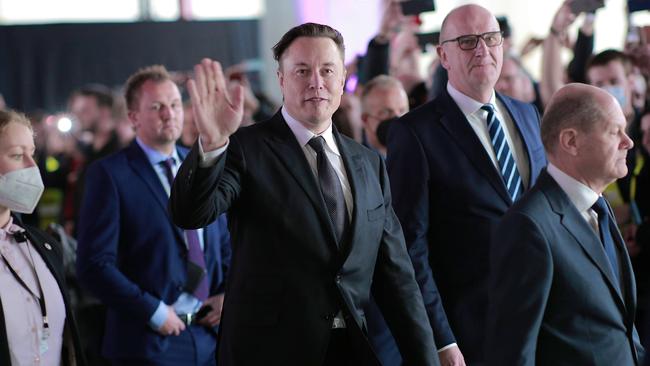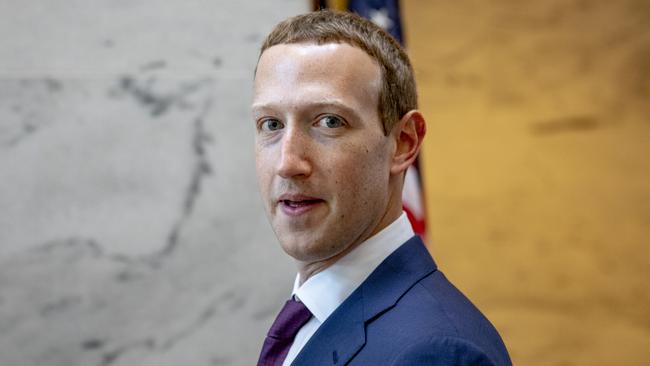Social media dinosaurs fall prey to upstarts
Artificial Intelligence is key for tech giants to keep up with the pack.

Mark Zuckerberg is not one for subtlety. The Facebook billionaire has his minions beavering away on a new virtual reality headset that will soon, he predicted, “replace your laptop”. He has codenamed it Project Cambria. The title is a nod to what palaeontologists call the Cambrian explosion, the era some 540 million years ago when, suddenly, major groups of animals first appeared on Earth. It was a blossoming of species unparalleled in the history of the planet.
Zuckerberg is hoping to catalyse a similar flowering of life, but in the metaverse, by inventing the gear necessary to access the immersive online world of his visions. He may be on to something with his evolutionary framing. Meta (nee Facebook) has crashed to earth after nearly two decades of user growth came to a shuddering halt. The resulting share price plunge vaporised half a trillion dollars in value. Elon Musk, meanwhile, has agreed to put down $US44bn in cash to take over Twitter, another social media pioneer now getting a bit long in the tooth. In the life of the internet – and nearly two decades into the social media age – we appear to be entering a new epoch, or coming to the end of one. The apex species are showing their age, struggling to forestall if not extinction then irrelevance. Think Facebook, Twitter and Pinterest. Younger, leaner predators, meanwhile, are clambering up the food chain. Think TikTok, Snap, and younger pretenders such as photo app BeReal.
Musk’s Twitter bid may come to be seen as a defining moment of this shift. Twitter, founded 16 years ago, helped kickstart the social media age. In its early days, it showed the immense, novel power to organise vast swathes of people into movements, like the Arab Spring. The darker sides of the app’s power, to arm bullies, bots and extremists, have taken centre stage in recent years amid the company’s clumsy and mostly ineffective attempts to control it.

To be fair, Twitter, Facebook, YouTube and the rest faced an almost impossible task. They stumbled into a concept that was a first in human history: a way to connect hundreds of millions of people in real time. Without any clear regulation from governments, they had to figure out the rules of engagement, and harder still, enforce them. It has not gone well.
Twitter’s stunning inability to keep the discourse “healthy” is what lured Musk to swoop. The Tesla tycoon has pledged to sort out Twitter by removing the guardrails it has haltingly put in place. Musk’s goal: to allow as much speech as legally possible. The early signs are not promising. When Musk called out, by name, Twitter executives last week over past moderation decisions, they were subjected to hails of racist, sexist diatribes – on Twitter.
Jim Scheinman, founder of Maven Ventures and an executive at early social networks Friendster and Bebo, said: “This could be the biggest experiment in ‘free speech’ this world has ever known.” He added: “Maybe Twitter gets it right and it becomes the largest functioning global town square. Or it could become a cesspool of racism and antisemitism and hate speech.”
What is certain is that this first chapter of Twitter is coming to a close. Which circles back to evolution. A social network is only as strong as the people who are on it. Fewer people beget fewer still because no one wants to be the only one left at a party.
The powers-that-be are vulnerable. Three of the top four free apps in Apple’s App Store are upstarts, including Donald Trump’s long-delayed Truth Social and BeReal, a photo app that bills itself as something of an anti-Instagram. This is very different from the fallow period between 2013 and 2019, which James Currier of NFX Partners, a San Francisco venture capital firm, called the “social media ice age”.
During this time, most companies and investors were too scared to compete with Facebook for fear of getting crushed or copied to death. BeReal is an interesting example of the new wave. Unlike Instagram’s emphasis on manicured images, BeReal sends notifications at random times, encouraging users to take photos instantly, with no time to pose for that “just-so” shot. It contains no filters.
Amid the shifting of these tectonic plates, TikTok has emerged. The streaming video platform is just six years old – it was the outlier of the ice age – but has already passed one billion users and is projecting $12bn in ad sales – three times what it brought in last year, more than double what Twitter generated in 2021 and four times Pinterest’s sales.
TikTok’s secret sauce is its artificial intelligence system, which recommends videos not based on who you know but subtle cues it picks up from what you watch. Zuckerberg, tellingly, is following TikTok’s lead, abandoning the “social graph” that has driven its experience virtually since inception, and spending lavishly to build up a similar AI recommendation engine.
It is an undertaking that only the most deep-pocketed – and desperate – company could even attempt. But one must do what it takes to survive.
The Sunday Times



To join the conversation, please log in. Don't have an account? Register
Join the conversation, you are commenting as Logout